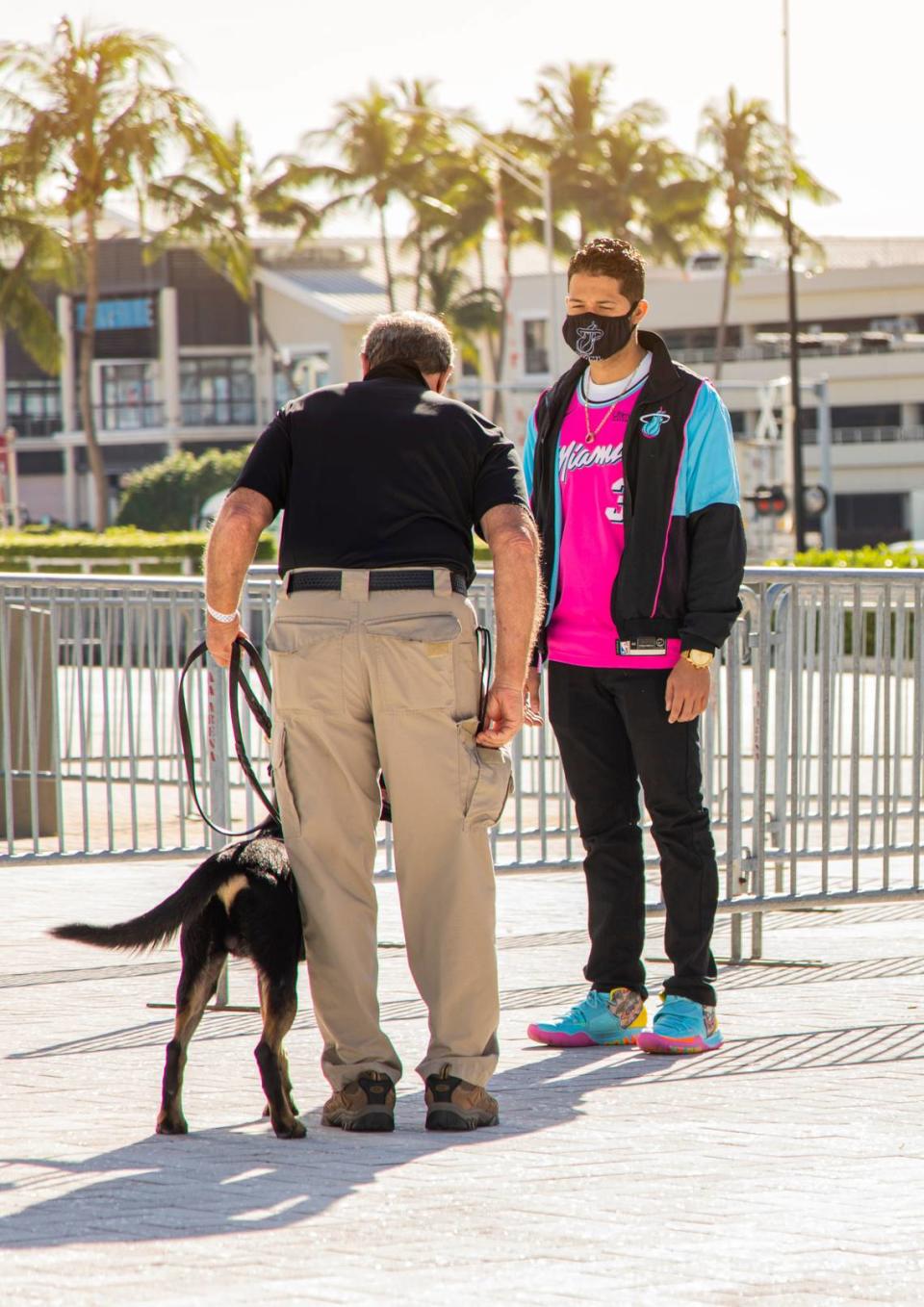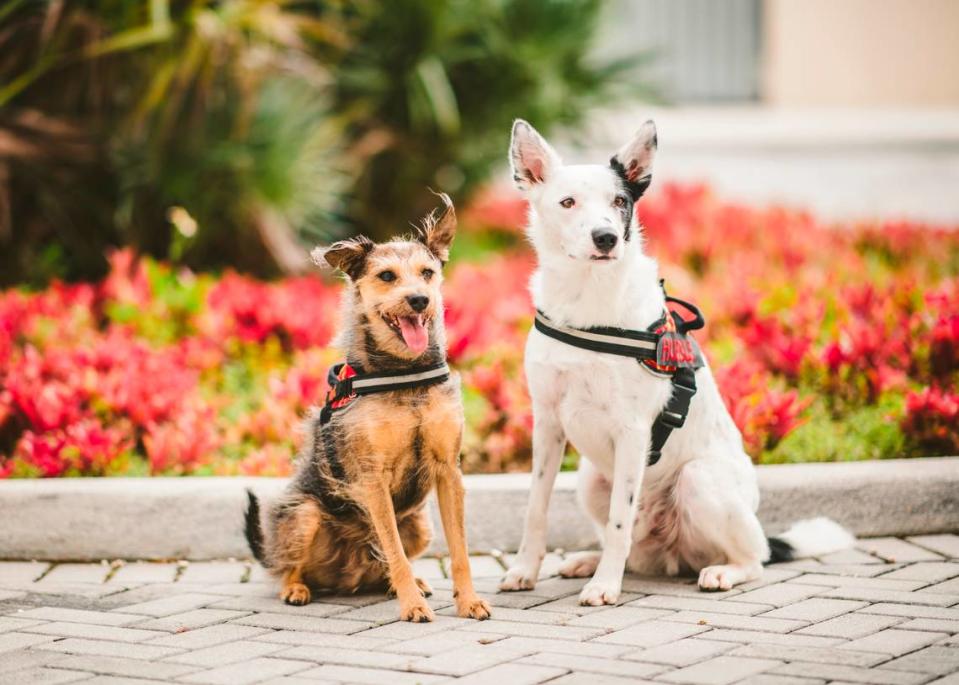First, Miami Heat used dogs to help fight COVID. FIU will soon use them too.
Florida International University will soon have a new line of defense against COVID-19 — a quartet of dogs.
Cobra, One Betta, Hubble and Mac have been trained by FIU’s International Forensic Research Institute to detect the smell of COVID-19.
“We need to fight this thing on all fronts,” said Director DeEtta Mills. “And this is one way that we can ask our four-legged friends to help us because their keen sense of smell is so much more accurate...and they can smell out this virus.”
The announcement comes a day after the Miami Heat said it would allow a limited number of fans to attend games at the AmericanAirlines Arena, but everyone will be sniffed by dogs trained to detect COVID-19. If the dog detects the disease, it will sit down.
So what does that mean for fans? Anyone in the same party of the person who the dog alerted to will not be allowed in.

Using dogs, for their sense of smell is not new. Dogs are trained to sniff out bombs and drugs. In some cases they are trained to sniff out a disease, including cancer.
Other countries including Finland, France and Russia have been training dogs to detect COVID. University of Helsinki researchers launched a pilot program at the Helsinki-Vantaa Airport to check travelers. According to the university, the dogs may be more useful than other COVID detectors because they are able to identify smaller levels of the virus.
According to Purina, a dog’s sense of smell can be anywhere from 10,000 to 100,000 times better than humans’, depending on the canine breed.
FIU’s plan for the dogs
Employing infected masks from Baptist Health, researchers used positive reinforcements — usually tennis balls or other toys — in order to teach the dogs to recognize the odor. The virus is inactivated with Ultraviolet C light, but the smell remains.
Unlike the Miami Heat, FIU’s dogs are trained to detect the virus on surfaces and empty classrooms before students and faculty enter. Mills says the process is similar to how dogs sweep for bombs. If the dog alerts, generally by sitting, then the room will go through further disinfection before anyone enters.
Mills said that the virus causes metabolic changes and the dogs are trained to smell the odor those changes produce.
Beginning in the spring, the dogs will sweep rooms on the university’s main campus, 11200 SW Eighth St.
“Our COVID-19 detector dogs are part of our campus-wide efforts to create the best possible environment using available evidence and our own research,” said FIU Provost and Chief Operating Officer Kenneth G. Furton, in a news release.
Cobra, a Belgian Malinois and One Betta, a Dutch shepherd, both have experience using their nose to smell out disease. Most recently, the dogs were used to sniff out a fungus that was killing avocado trees.

The other two dogs, both rescues, were trained first in a lab and then in larger spaces, including auditoriums, computer labs, and libraries. The rescues are smaller dogs and can be used to sniff out corners and smaller areas, while the bigger dogs can reach high surfaces.
FIU’s COVID detector dogs were invited to sweep the State Emergency Operations Center in Tallahassee next week.
“We just want to make sure our facilities are as clean as they can be,” Mills said.

 Yahoo Movies
Yahoo Movies 
